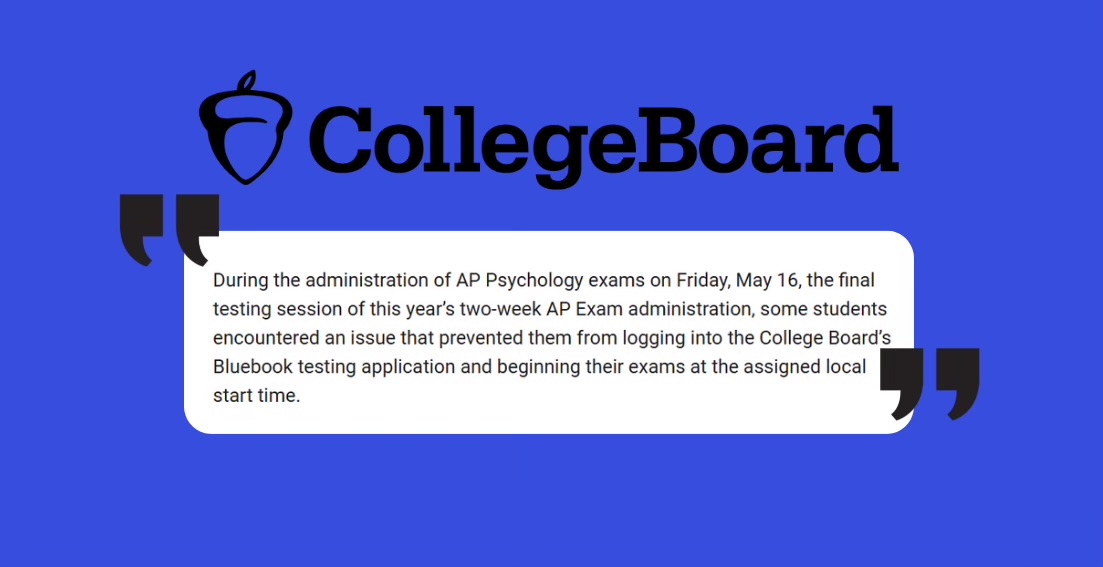2025 marks the first year of digital Advanced Placement exams administered by the non-profit organization College Board. Out of the 28 exams, 16 are now fully digital and 12 are hybrid digital. Digitizing exams provides relief for some students, removing the need to fill out annoying scantrons, or get hand cramps from writing numerous short-answer, document-based, and long-answer questions all in one sitting. The introduction of digital exams also allows for more flexibility, as well as efficiency in administering the test itself.
According to Advanced Placement head Trevor Packer one of the main reasons to go digital was that “students and teachers work hard in AP® courses and deserve the confidence that other students aren’t gaining an unfair advantage. Unfortunately, this year, we saw a rise in bad actors compromising AP Exam content for financial gain.” Preserving the students’ scores is key to the College Board’s survival. Still, between the dysfunctional AP Psychology exam and various other technological issues, the introduction of digital exams could also be the College board’s downfall.
Radnor’s Experience
At 11:45 p.m. on Friday May 16th, Radnor’s psychology students gathered to take what would have been the end of their year in the course: the AP exam. But when attempting to sign in, about one third of the group were met with either an error message or the infamous never-ending loading sign. As these errors persisted closer and closer to the start time of 12 p.m., students and proctors alike grew visibly worried.
The heavy rain, infamous for causing spotty Wi-Fi, was initially thought to be the cause of the issue; however, as the proctors began to communicate with those beyond the room, the crash was discovered to be an issue all along the east coast. To avoid the whole room not being able to take the exam, students who could not log in were dismissed back to classes while students with no technological issues continued.
College Board stated on their website that, “The issue was resolved by about 1:45 p.m. EDT; the AP Program extended the start time for the exam to 2 p.m. local time, enabling schools with that flexibility in their schedules to begin the exam.” Unfortunately, taking the exam at a later starting time was not an option given to the Radnor students who were not able to get in originally.
Reactions varied for those who could not take the exam. Once in the hallway, faces of relief, stress, anger, and sadness all showed. To some, the extra time was a new-found opportunity to get a 5, but for others, it was an extension of the seemingly never-ending study cloud. When asking sophomore Reese Connor how she felt, she said, “Now that’s another thing that I have to worry about.” Reese also had plans to make-up regular tests that she missed, so studying for those on top of the rescheduled psychology exam made a far from ideal situation.
Another digital mistake affected the AP Statistics students at Radnor, as they did not receive their reference chart and formula sheet, according to Radnor senior Daisy Madden. The students were subsequently given the option to take the exam on the make up date. These technological inconveniences may leave AP test takers worried for the future, as currently there is no option to revert back to paper exams unless you have an accommodation. Having online exams can be beneficial in many ways, especially for the writing portions, but is it worth risking coming face to face with technology issues? College Board certainly has much to look into for next year to build trust with AP exam takers once again.








